
Susan Lee Lindquist, ForMemRS was an American professor of biology at MIT specializing in molecular biology, particularly the protein folding problem within a family of molecules known as heat-shock proteins, and prions. Lindquist was a member and former director of the Whitehead Institute and was awarded the National Medal of Science in 2010.
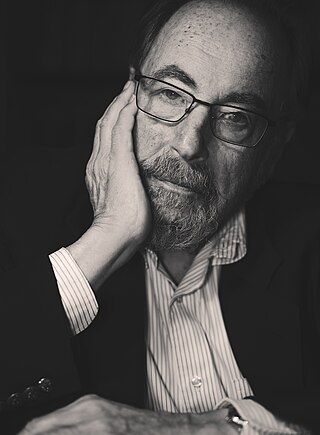
David Baltimore is an American biologist, university administrator, and 1975 Nobel laureate in Physiology or Medicine. He is President Emeritus and Distinguished Professor of Biology at the California Institute of Technology (Caltech), where he served as president from 1997 to 2006. He also served as the director of the Joint Center for Translational Medicine, which joined Caltech and UCLA in a program to translate basic scientific discoveries into clinical realities. He also formerly served as president of Rockefeller University from 1990 to 1991, founder and director of the Whitehead Institute of Biomedical Research from 1982 to 1990, and was president of the American Association for the Advancement of Science in 2007.

Michael Smith was a British-born Canadian biochemist and businessman. He shared the 1993 Nobel Prize in Chemistry with Kary Mullis for his work in developing site-directed mutagenesis. Following a PhD in 1956 from the University of Manchester, he undertook postdoctoral research with Har Gobind Khorana at the British Columbia Research Council in Vancouver, British Columbia, Canada. Subsequently, Smith worked at the Fisheries Research Board of Canada Laboratory in Vancouver before being appointed a professor of biochemistry in the UBC Faculty of Medicine in 1966. Smith's career included roles as the founding director of the UBC Biotechnology Laboratory and the founding scientific leader of the Protein Engineering Network of Centres of Excellence (PENCE). In 1996 he was named Peter Wall Distinguished Professor of Biotechnology. Subsequently, he became the founding director of the Genome Sequencing Centre at the BC Cancer Research Centre.

Howard Robert Horvitz ForMemRS NAS AAA&S APS NAM is an American biologist best known for his research on the nematode worm Caenorhabditis elegans, for which he was awarded the 2002 Nobel Prize in Physiology or Medicine, together with Sydney Brenner and John E. Sulston, whose "seminal discoveries concerning the genetic regulation of organ development and programmed cell death" were "important for medical research and have shed new light on the pathogenesis of many diseases".

Aaron Ciechanover is an Israeli biologist who won the Nobel Prize in Chemistry for characterizing the method that cells use to degrade and recycle proteins using ubiquitin.
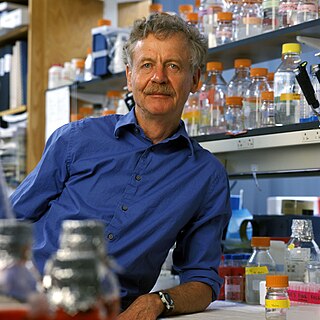
Rudolf Jaenisch is a Professor of Biology at MIT and a founding member of the Whitehead Institute for Biomedical Research. He is a pioneer of transgenic science, in which an animal’s genetic makeup is altered. Jaenisch has focused on creating genetically modified mice to study cancer and neurological diseases.
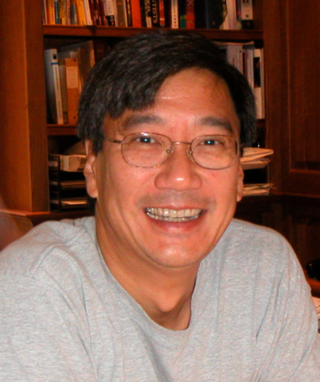
Peter S. Kim is an American scientist. He was president of Merck Research Laboratories (MRL) 2003–2013 and is currently Virginia & D.K. Ludwig Professor of Biochemistry at Stanford University, Institute Scholar at Stanford ChEM-H, and Lead Investigator of the Infectious Disease Initiative at the Chan Zuckerberg Biohub.
The Wiley Prize in Biomedical Sciences is intended to recognize breakthrough research in pure or applied life science research that is distinguished by its excellence, originality and impact on our understanding of biological systems and processes. The award may recognize a specific contribution or series of contributions that demonstrate the nominee's significant leadership in the development of research concepts or their clinical application. Particular emphasis will be placed on research that champions novel approaches and challenges accepted thinking in the biomedical sciences.

Angelika Amon was an Austrian American molecular and cell biologist, and the Kathleen and Curtis Marble Professor in Cancer Research at the Massachusetts Institute of Technology (MIT) in Cambridge, Massachusetts, United States. Amon's research centered on how chromosomes are regulated, duplicated, and partitioned in the cell cycle. Amon was elected to the American Academy of Arts and Sciences in 2017.

George Quentin Daley is the Dean of the Faculty of Medicine, Caroline Shields Walker Professor of Medicine, and Professor of Biological Chemistry and Molecular Pharmacology at Harvard Medical School. He was formerly the Robert A. Stranahan Professor of Pediatrics at Harvard Medical School, Director of the Stem Cell Transplantation Program at Boston Children's Hospital, and an investigator of the Howard Hughes Medical Institute, Associate Director of Children's Stem Cell Program, a member of the Executive Committee of the Harvard Stem Cell Institute. He is a past president of the International Society for Stem Cell Research (2007–2008).

Douglas James Hilton is an Australian molecular biologist. He is the Director of the Walter and Eliza Hall Institute of Medical Research in Melbourne, Australia and Head of the Department of Medical Biology at the University of Melbourne. His research has focused on cytokines, signal transduction pathways and the regulation of blood cell formation (hematopoiesis). Since 2014, Hilton has been the President of the Association of the Australian Medical Research Institutes (AAMRI).
Alan D. D'Andrea is an American cancer researcher and the Fuller American Cancer Society Professor of Radiation Oncology at Harvard Medical School. D'Andrea's research at the Dana Farber Cancer Institute focuses on chromosome instability and cancer susceptibility. He is currently the director of the Center for DNA Damage and Repair and the director of the Susan F. Smith Center for Women's Cancer.
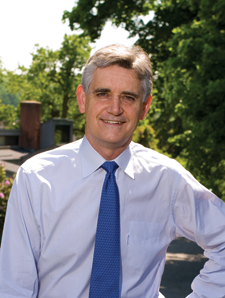
Bruce William Stillman, AO, FAA, FRS is a biochemist and cancer researcher who has served as the Director of Cold Spring Harbor Laboratory (CSHL) since 1994 and President since 2003. He also served as the Director of its NCI-designated Cancer Center for 25 years from 1992 to 2016. During his leadership, CSHL has been ranked as the No. 1 institution in molecular biology and genetics research by Thomson Reuters. Stillman's research focuses on how chromosomes are duplicated in human cells and in yeast Saccharomyces cerevisiae; the mechanisms that ensure accurate inheritance of genetic material from one generation to the next; and how missteps in this process lead to cancer. For his accomplishments, Stillman has received numerous awards, including the Alfred P. Sloan, Jr. Prize in 2004 and the 2010 Louisa Gross Horwitz Prize, both of which he shared with Thomas J. Kelly of Memorial Sloan-Kettering Cancer Center, as well as the 2019 Canada Gairdner International Award for biomedical research, which he shared with John Diffley.
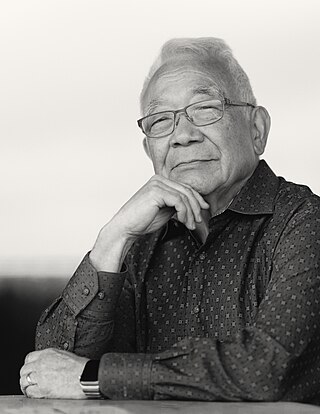
Keith R. Yamamoto is vice chancellor of Science Policy and Strategy and professor of Cellular and Molecular Pharmacology at the University of California, San Francisco, (UCSF). He is known for his Molecular Biology and Biochemistry research on nuclear receptors and his involvement in science policy and precision medicine.
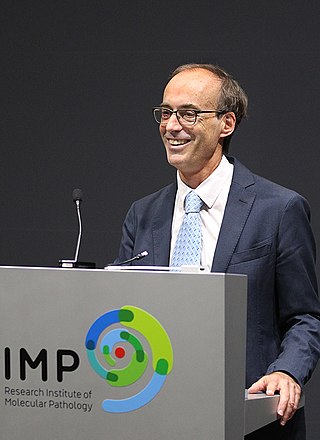
Ronald David Vale ForMemRS is an American biochemist and cell biologist. He is a professor at the Department of Cellular and Molecular Pharmacology, University of California, San Francisco. His research is focused on motor proteins, particularly kinesin and dynein. He was awarded the Canada Gairdner International Award for Biomedical Research in 2019, the Shaw Prize in Life Science and Medicine in 2017 together with Ian Gibbons, and the Albert Lasker Award for Basic Medical Research in 2012 alongside Michael Sheetz and James Spudich. He is a fellow of the American Academy of Arts and Sciences and a member of the National Academy of Sciences. He was the president of the American Society for Cell Biology in 2012. He has also been an investigator at the Howard Hughes Medical Institute since 1995. In 2019, Vale was named executive director of the Janelia Research Campus and a vice president of HHMI, his appointment began in early 2020.

Lydia Villa-Komaroff is a molecular and cellular biologist who has been an academic laboratory scientist, a university administrator, and a business woman. She was the third Mexican-American woman in the United States to receive a doctorate degree in the sciences (1975) and is a co-founding member of The Society for the Advancement of Chicanos/Hispanics and Native Americans in Science (SACNAS). Her most notable discovery was in 1978 during her post-doctoral research, when she was part of a team that discovered how bacterial cells could be used to generate insulin.
Ruth Lehmann is a developmental and cell biologist. She is the Director of the Whitehead Institute for Biomedical Research, succeeding David Page. She previously was affiliated with the New York University School of Medicine, where she was the Director of the Skirball Institute of Biomolecular Medicine, the Laura and Isaac Perlmutter Professor of Cell Biology, and the Chair of the Department of Cell Biology. Her research focuses on germ cells and embryogenesis.
Terry L. Orr-Weaver is an American molecular biologist in the MIT Department of Biology with a joint appointment to the Whitehead Institute. She does research on developmental biology, with a focus on "[c]oordination of cell growth and division with development, with particular focus on the oocyte-to-embryo transition, control of cell size, and regulation of metazoan DNA replication." Orr-Weaver and her collaborators have identified two proteins necessary for the proper sorting of chromosomes during meiosis with implications for cancer and birth defects. In 2006 she was elected to the National Academy of Sciences.
Akhilesh Pandey, M.D., Ph.D., is an Indian-American proteomicist and a Professor at Department of Laboratory Medicine and Pathology, Center for Individualized Medicine of Mayo Clinic in Rochester, Minnesota, USA. He is also the founding director and chief scientific advisor of the Institute of Bioinformatics in Bangalore, India.













